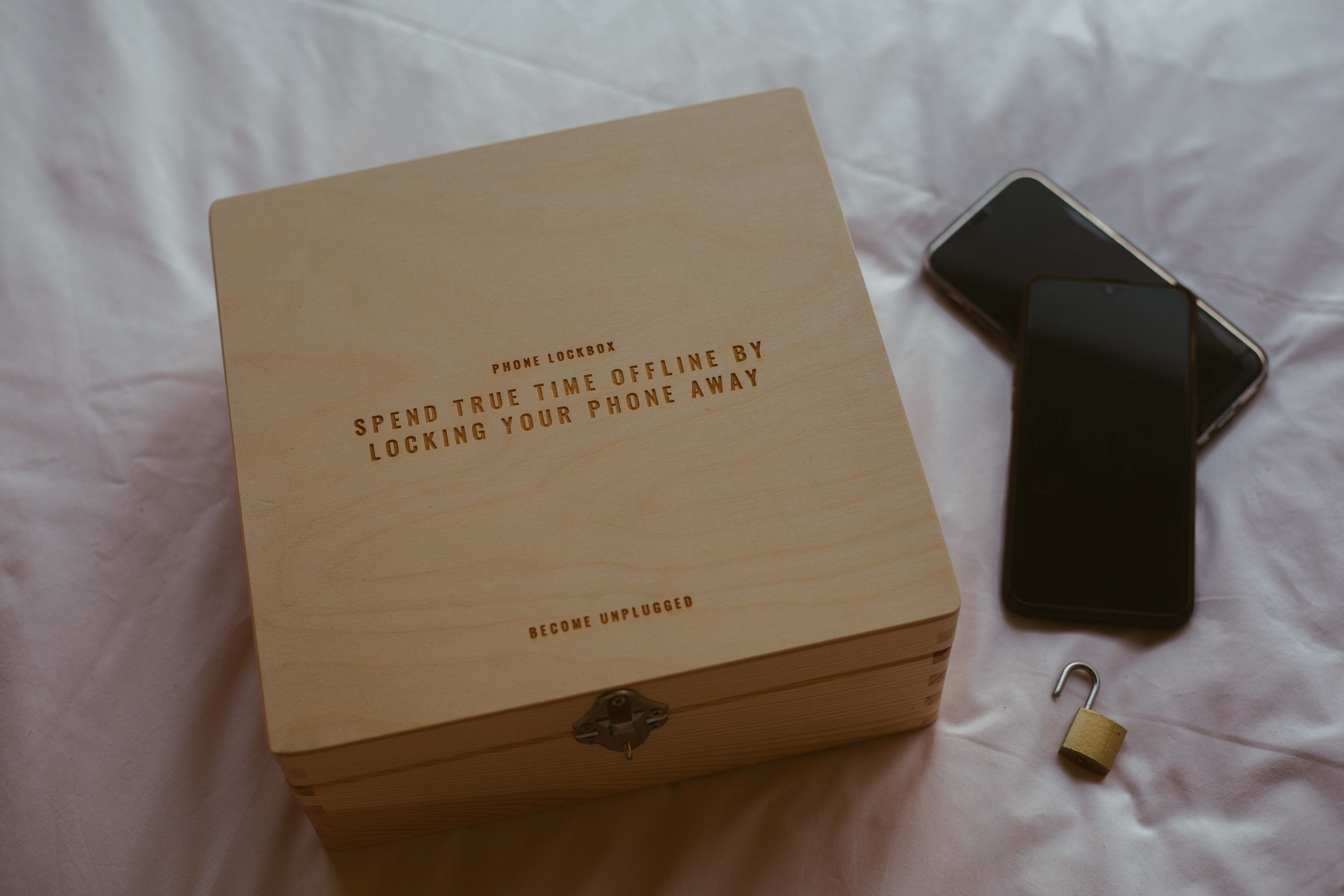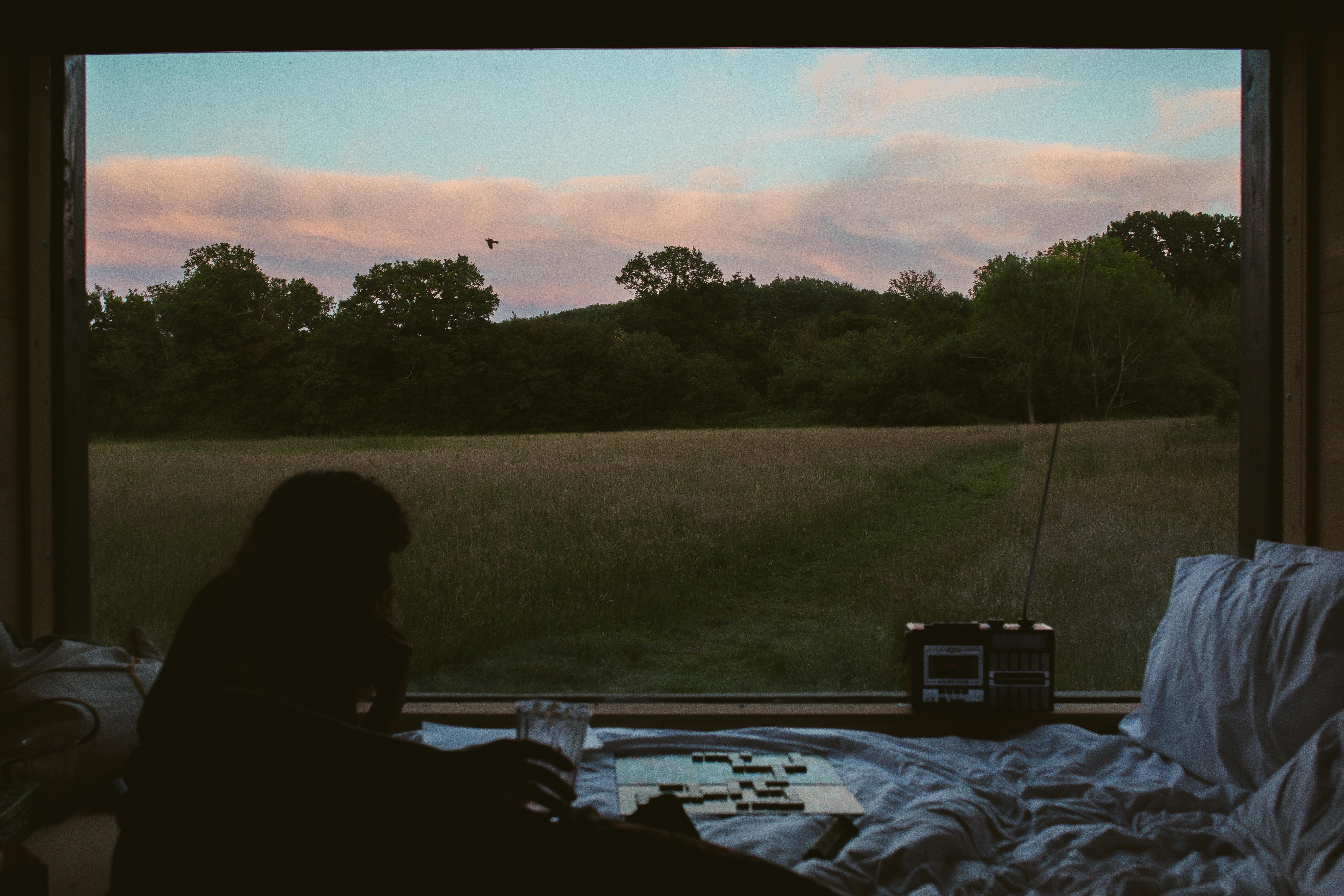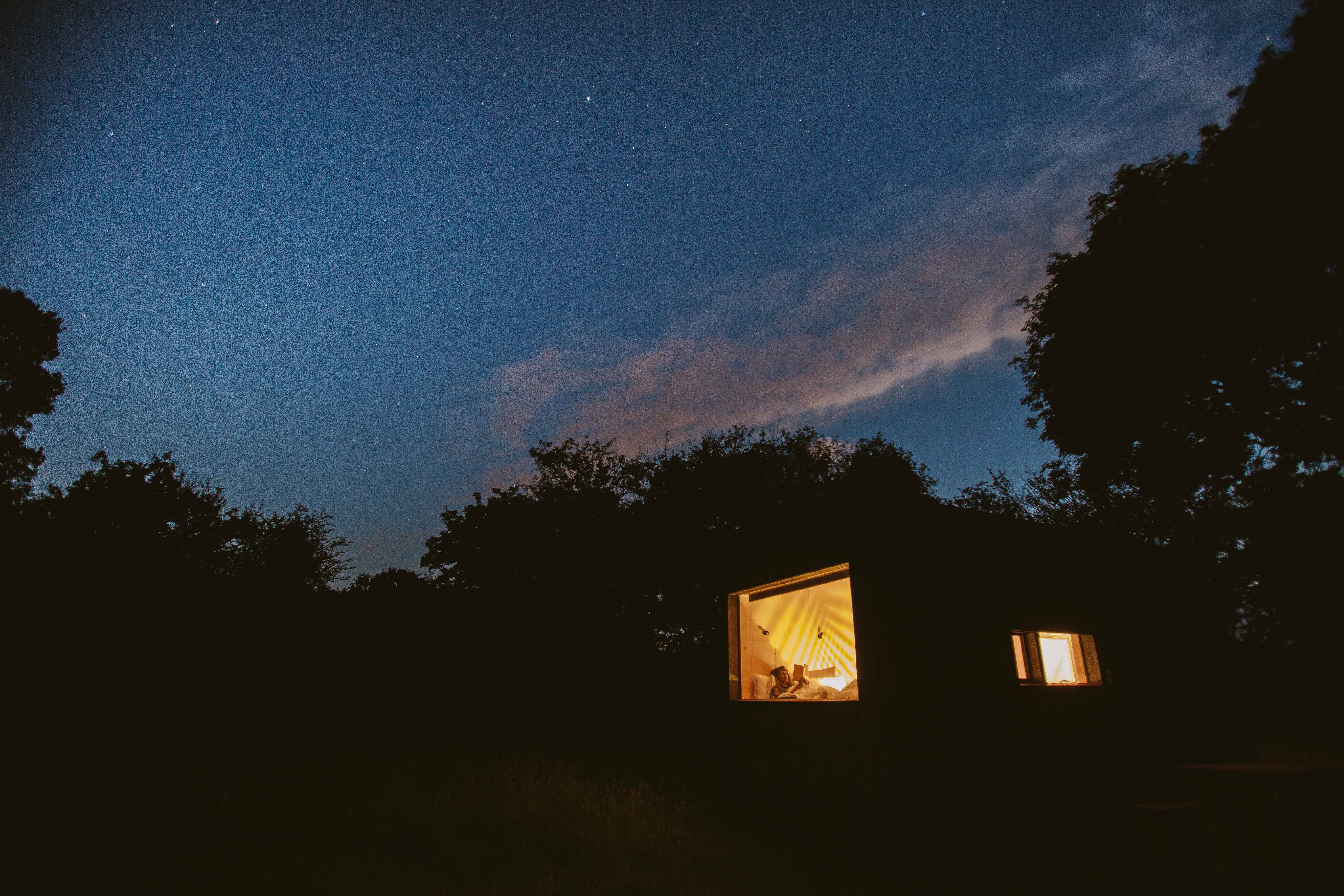Digital detox: Why locking your phone in a box makes for the ultimate mindful retreat
After nearly two years of lockdowns, working from home, and no let up from Zoom meetings, Laura Sanders finds the ideal environment for anybody to try a digital detox – no chanting or funky juice concoctions necessary

The last time I was required to lock my phone away in a box, I was at school and it was a punishment – not something people paid for the privilege of doing and certainly not something I thought I’d look forward to. But in the right environment, such as a cosy cabin in the Sussex countryside, with a fire crackling away and a snuggly bed overlooking my own bit of land, it was more than doable – even for somebody who takes her phone in the shower with her.
With the average person’s screen time more than doubling during the pandemic and two-thirds of couples now reportedly spending upwards of five hours on their devices a day instead of communicating with each other, it comes as no surprise that digital detoxes are increasingly in demand (and increasingly needed). Even before Covid-19, many of us had lost touch with the “real world” and forgotten how to live meaningfully in it. What’s more, there’s still a huge stigma surrounding mental health and carving time out to practice self-care to maintain it.
In 2020, Hector Hughes and Ben Elliot, two former tech start-up workers from London, set out to prove that the key to reconnecting with our surroundings and truly taking time out isn’t in the number of miles we travel away from home, or extravagant retreat programmes which have you doing yoga at dawn and drinking green juice, but simply the distance we put between ourselves and our gadgets.

Just an hour away from the all-consuming, crowded chaos that is London, guests can check into one of nine off-grid cabins for a long weekend away from tech by literally padlocking it in a box. In exchange, they’ll be given a Nokia phone, which is only good for making calls, sending texts and, of course, playing Snake; a map and compass with local attractions marked out; a loaded polaroid camera; a battery-powered radio; and a gratifying selection of board games and books.
This wasn’t camping or even glamping. Our [myself and my less enthusiastic boyfriend’s] cabin, Gruff, which was one of two Unplugged cabins off an old dairy farm near the sleepy village of Thakeham, West Sussex, came with all of the creature comforts we needed. Built entirely out of wooden panels, which could be dismantled and made into something else, its stripped back Scandi-style interior promoted a sense of simpler living, while the floor-to-ceiling window overlooking the farmer’s field stole the show.
The view was pastoral at its most simplistic: there weren’t even animals in the field beyond, just trees, native wildflowers and the path to our cabin. Although there was another cabin on our site, careful positioning and distancing between the two meant we never saw our neighbours, which we soon realised was a conscious decision made by the co-founders.
The view was pastoral at its most simplistic: there weren’t even animals in the field beyond, just trees, native wildflowers and the path to our cabin
We were asked in the checking-in instructions to only use our allocated gate to exit the field when heading out, a request designed to ensure we avoided appearing in our neighbours’ window frame and ruining the illusion of complete isolation. With our own secluded patch of English countryside to watch over from the comfort of our cosy double bed, we too felt like the only people in the world.
Cabins are self-catering and are set up with a fridge, sink and gas hob for cooking – though if you didn’t want to cook for yourself, there’s a selection of pubs, cafes and even takeaways not too far away. The cabin has a little bathroom with a shower, wash basin and compost toilet – the ‘Scandi SuperLoo’. Unplugged’s co-founder, Hector, told me it’s always fun to see how people react to the toilet; it requires users to be seated which triggers a flap underneath to open up for your er… business to drop through. No flushing necessary (but don’t worry, you can still use toilet roll). The shower, which came through gloriously hot, and everything else in the cabin runs on solar power and in the corner stands a log burner to cosy up to.
I’m told by Hector that 72 hours (three nights) is the minimum time you can stay, because it’s the minimum amount of time needed to truly feel the benefits of disconnecting from all of the notifications and noise of the city. He would know; he went on the real deal retreat to a Buddhist monastery in the Himalayas a few years back.

Now an advocate for slowing things down and switching off, Hector once laughed at the idea of going on a retreat, he tells me. “There’s still too much stigma around retreats and meditation and so much of the benefit is just getting people offline,” he says. That’s what the focus of Unplugged is – no expectations to be meditating and walking around in silence (unless, of course, you want to). What guests can expect is to be set up for success with everything they need to avoid caving and reaching for their gadgets.
Everything, even down to making a coffee, is designed to slow things down. One must first grind the coffee beans and make up a filter while waiting for the water to boil on the stove. And no dishwasher means washing up in the sink while gazing out of the window at your own private piece of countryside.
It is possible to spend the entire stay in your off-grid cocoon, but we were keen to wrap up and venture out to test our rusty map-reading skills
It is possible to spend the entire stay in your off-grid cocoon, but we were keen to wrap up and venture out to test our rusty map-reading skills. Each cabin is within walking distance of pubs, shops for any essentials you’ve forgotten, and local attractions, such as a badger rewilding project, a Buddhist monastery or, in our case, a vineyard where we got giggly over wine samples. Kinsbrook Vineyard was a 40-minute walk away past working farms, down quiet country lanes and through a quaint village, which we’d return to later for dinner. The vineyard offers tours and tastings of its homegrown food and wine in a pretty marquee.
This stay isn’t a replacement for a holiday abroad, nor is it going to provide an adrenaline hit or unexpected thrills. But what you can expect is an idyllic British rural retreat in the ideal environment for giving a digital detox a try.

And, if you have to reach for your phone, you only need to open the envelope with the key inside and unlock the box. After a few hours without it and a round or two of Scrabble though, I didn’t miss it; if there was an Unplugged cabin closer to home in the Midlands, I’d be back in a heartbeat.
Travel essentials
There are nine cabins to choose from and a three-night stay is £197 per person. All bookings must be made online.
All cabins are dog-friendly.
Unplugged has cabins located both north and south of London and every cabin is accessible by car or train and taxi.






Join our commenting forum
Join thought-provoking conversations, follow other Independent readers and see their replies
Comments